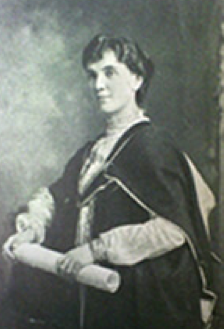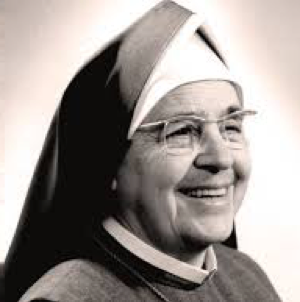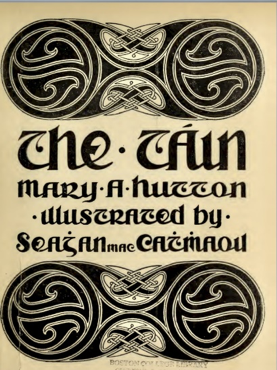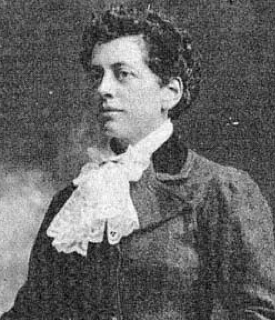08.03.2023
The first five women conferred with honorary degrees by the National University of Ireland
On the eve of International Women’s Day 2023, the National University of Ireland conferred honorary degrees on four esteemed recipients: Mari Cahalane, Prof Mohamed Ali Fadhil Al-Rubeai, Prof Clair Wills and Michael Lillis. In thinking about the history of these honorary degrees conferred over the years, NUI wanted to look back at the first five female recipients of honorary degrees. Their stories and their achievements form a tapestry of scholarship, political engagement and scientific innovation, for the benefit of Ireland and the world. These are values still demonstrated by the incredible recipients of NUI honorary degrees to this day.
International Women's Day 2023
-
Green, Alice S.A. (née Stopford) DLitt 1928

Photo Credit: Wikipedia
Alice Sophia Amelia Stopford Green was born in Kells, Co. Meath in 1847. She was a historian and political activist, focusing on nationalism and anti-colonialism, in South Africa and Congo as well as Ireland. She visited prisoners in St Helena during the Boer War to publicise and decry their living conditions. She also helped to form the Congo Reform Association along with Roger Casement. Her histories, which included The Making of Ireland and its Undoing, Irish Nationality and The Old Irish World, considered Ireland’s national culture as how it could and would fit in to the greater European community once it achieved independence. She was a central figure in the Gaelic revival, alongside others such as Lady Gregory and Sinéad de Valera. She was involved in and helped to fund the Howth Gun-Running of 1914.
In 1922, she was one of four women elected to serve on the first Seanad Éireann. In 1928, the National University of Ireland gave her an honorary DLitt. She continued to serve on the Seanad until her death in 1929, at the age of 91.
-
Concannon, Helena (née Walsh) DLitt 1929

Photo Credit: Wikipedia
Helena Concannon, born in Derry in 1878, was a historian, writer, language scholar and politician. A professor of history at University College Galway (now University of Galway), her prolific writings included Daughters of Banba; Irish Nuns in Penal Days; The Blessed Oliver Plunkett and Women of Ninety-Eight. Her work was innovative in that it heavily featured the role of women in Irish rebellion, in both direct and indirect ways. Her view of womanhood would have featured the woman as the centre of a Catholic and nationalist household, with her primary role being the sister, wife, daughter or mother of the men of Ireland as they fought for independence. In 1929, the National University of Ireland gave her a DLitt.
From 1933 to 37, Concannon served on the Dáil as TD for the NUI constituency. During her time as TD, she spoke on increasing the funding for women’s education. In 1938, she was elected to the Seanad Éireann for the NUI constituency, and served until her death in 1952.
-
Dengel, Anna, BSc, MB BCh BAO, 1919 MD 1932

Photo Credit: missionpriest.com
Anna Dengel, born in Austria in 1892, was a physician, humanitarian, religious sister and founder of the Medical Mission sisters. In her twenties, she heard that a Catholic missionary named Agnes McLaren was seeking female doctors for a hospital in Northern India. Because the Muslim women in that region could not attend male physicians, it was therefore vital to have female doctors staffed on the mission. Dengel got in touch with McLaren and, under her advice to qualify as a doctor, she did so in University College Cork. Graduating in 1919, she interned in England before heading to the hospital in Rawalpindi.
There were some barriers in religious communities to practising medicine, so in 1925, Dengel, along with Johanna Lyons, Evelyn Flieger and Marie Ulbrich, founded the Society of Catholic Medical Missionaries. They could not profess their canonical vows, however, until the Catholic Church lifted the restriction of medical practise by religious sisters. In 1932, the National University of Ireland conferred Dengel with an honorary MD. With the Society growing and demonstrating its importance, now known as the Medical Mission Sisters, in 1936 the Church approved their working in medicine and recognised their congregation. She passed away in 1980 in Rome.
-
Hutton, Mary A. (née Drummond) DLitt 1933

Photo Credit: Roaringwaterjournal.com
Born in Manchester in 1862, Mary Ann Hutton was a scholar, Irish language activist and central figure in the Gaelic revival. She and her husband, Arthur Hutton, moved to Belfast after their marriage. A friend of Pádraig Pearse, she financially supported his school, St Enda’s, in its establishment and provided a loan of £100 when it was in need of money in 1911. She was a writer for An Claidheamh Soluis and supported Conradh na Gaeilge in various ways throughout her life. Widowed in 1908, she moved to Dublin where she was a well-known figure at Conradh na Gaeilge’s events and activities.
She is most recognised for her 1907 publication The Táin: an Irish Epic Told in English Verse, based on the Táin Bó Cuailgne. Over the preceding ten years, Hutton collected and appended many sources to create her re-working of the legend, with explanations and additional context for names and terms. She was the first woman to be nominated for membership to Royal Irish Academy in 1910, supported by Douglas Hyde and Eoin MacNeill, but was unsuccessful. In 1933, she was awarded an honorary DLitt by the National University of Ireland. She passed away in 1953 and is buried at the historic Deansgrange cemetery.
-
Hayden, Mary T., BA, 1885; MA, 1887 DLitt 1935

Photo Credit: Wikipedia
Mary Hayden was born in Merrion Square, Dublin, in 1862. She was a prominent Irish historian, suffragist and member of the Gaelic League. She held BA and MA degrees from the Royal University of Ireland, and alongside Agnes O’Farrelly and Hanna Sheehy-Skeffington, she campaigned for equality in third-level education for women and for women to be employed by universities on the same terms as men. She and Sheehy-Skeffington formed the Irish Association of Women Graduates in 1902.
She was elected to the Senate of the National University of Ireland in 1911, and was the first female Professor of Modern Irish History in University College Dublin. Like Mary Hutton, she was a friend of Pádraig Pearse, due to their shared Irish-language activism and membership of the Gaelic League. She opposed the violence of the 1916 Rising strongly, however. With Mary Gwynn, she founded the Irish Catholic Women’s Suffrage Association in 1915.
In her career as a historian, she was more active in teaching than in research. She wrote scholarly articles for publications, but her most prominent work was A Short History of the Irish People from the Earliest Times to 1920. In 1935, she was conferred with an honorary DLitt by NUI. In 1937, she was a founding member of the Women’s Social and Progressive League, in opposition to the 1937 constitution’s view on the status of women. She passed away in Dublin in 1942.
« Previous























